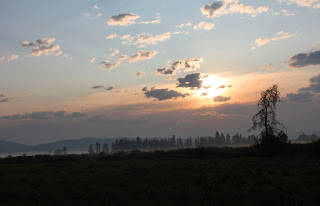By some accounts, William Clark, of the famous Lewis
and Clark Expedition, spelled the word Mosquito some 26 different ways in the
journals he wrote to document the exploration of the American West. Probably, that number is an exaggeration but
William Clark used well over a dozen spellings.
My personal favorite is this: musqueters.
The claim is made that in all of Mr. Clark’s
attempts at spelling Mosquito he never once managed to get it correct.
Only this much is certain: the missquetors drove the entire Corps of Discovery nuts on warm summer
evenings.
Interestingly, the musquiters still drive men a bit crazy to this day. Yesterday, as example, I read in Science News
that scientists recently went so berserk as to spend a great deal of money and
time studying what happens when a raindrop hits a mosquito.
Well, duh, they get hugely wet!
Actually the scientists set up elaborate methods of
filming drops of water striking the tiny insects. The most critical concept to grasp here is
that someone paid these folks to film water splashing against bugs. I am currently seeking information on where I
might submit my job application.
Is there such a thing as a mosquito fluffer?
One scientist remarked, after watching the film of a
water drop hitting a mosquito in midair, that it “is like a midair collision
between a human and a bus.” Except, not
really. Buses don’t fly all that well.
Turns out that mosquitoes more-or-less ride the
raindrops for a brief time when struck.
At some point, unless the ground reaches them first, the insects break
free and stop at the nearest diner for a cup of coffee.
I feel so much better knowing that. But I am still wondering where the white
goes when snow melts.
--Mitchell
Hegman













